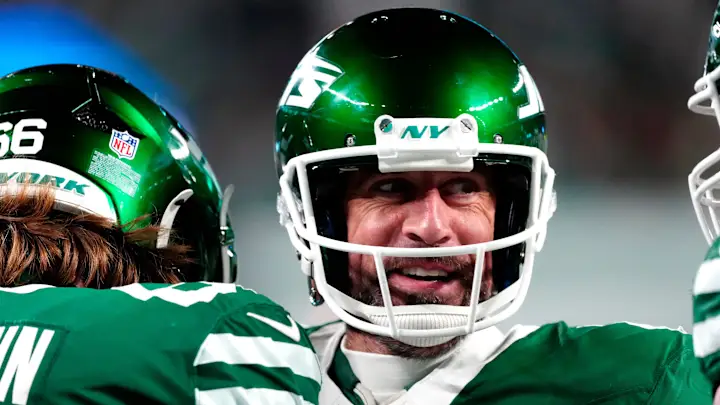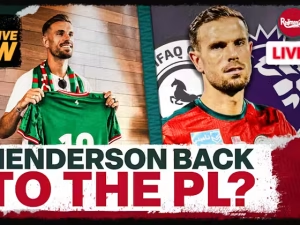
The Nature of Professional Sports
Professional sports have always held a unique place in society, serving as both a form of entertainment and a reflection of human determination, teamwork, and excellence. At the heart of this dynamic world lies a complex and multifaceted nature that goes beyond the simple act of competition. Professional sports combine athleticism, business, media, fan culture, and individual identity in ways that few other industries do. To truly understand the nature of professional sports, one must examine the intricacies of the athletes, the leagues, the business of sports, the global reach, and the social impact that sports have on society.
The Athlete: The Heart of Professional Sports
At the core of professional sports is the athlete. Professional athletes are individuals who have risen through the ranks of their respective sports to reach the highest level of competition. They are often seen as paragons of physical prowess, mental toughness, and determination. The nature of professional athletes extends far beyond their on-field accomplishments. They live a life of rigorous training, constant self-improvement, and intense competition. Their careers are often short-lived compared to other professions, with athletes needing to achieve peak performance during a brief window in their youth and early adulthood.
Being a professional athlete involves more than simply showing up to play the game. The level of commitment required to excel is extraordinary. From daily training sessions to physical therapy and maintaining mental focus, athletes must sacrifice much of their personal time and energy to be at the top of their game. Their bodies are finely tuned instruments, often subjected to the wear and tear of intense physical exertion, resulting in frequent injuries that can alter the course of their careers. This physical toll creates an urgency in the athlete’s career, knowing that the window for greatness is limited.
While athletes’ on-field performances garner the most attention, the off-field aspects of their lives are just as critical in defining the nature of professional sports. Athletes are often public figures, constantly in the spotlight, scrutinized by fans, media, and sponsors. Their behavior, both on and off the field, can have significant repercussions, impacting their careers and even the financial health of their teams. This level of scrutiny can be both empowering and exhausting for athletes, as they navigate not only the competition but the pressure of their public persona.
The Business of Professional Sports
Professional sports are, at their core, businesses. Behind the glamorous world of stadiums, sponsorships, and elite athletes lies a massive commercial enterprise driven by television deals, merchandising, ticket sales, endorsements, and media rights. Teams and leagues are corporate entities, with owners, executives, and other stakeholders overseeing operations that seek to generate revenue while maintaining a competitive product on the field.
Television and media rights are a cornerstone of the financial structure of professional sports. Major sports leagues, such as the NFL, NBA, Premier League, and MLB, negotiate multi-billion-dollar television contracts that ensure their games are broadcasted globally. These deals not only provide teams with significant revenue but also increase the sport’s visibility and popularity worldwide. The commercialization of sports has turned athletes into global brands, with endorsements and personal sponsorships becoming an essential revenue stream for many professional athletes. Endorsement deals with companies like Nike, Adidas, or Gatorade have allowed athletes to build lucrative careers off the field, extending their influence far beyond their sport.
Professional sports also have a deep impact on local economies. Major cities that host professional teams benefit from increased tourism, job creation, and local commerce, particularly on game days. Stadiums, arenas, and other venues have become complex ecosystems of entertainment, where food, merchandise, and fan experiences are crucial to driving revenue. As sports franchises grow, they have become central to the identity of the city they represent, making the financial stakes even higher for owners and local governments.
However, the business side of professional sports can sometimes clash with the purity of competition. Financial incentives can alter the nature of the game, with some franchises focusing more on profit than the quality of play. Salary caps, player trades, sponsorships, and media coverage all shape the dynamics of competition, sometimes skewing the natural ebb and flow of sports in favor of financial strategies. Teams may prioritize branding, ticket sales, or high-profile players over building a balanced roster that ensures long-term competitiveness.
Media and Fan Culture: The Power of Representation
The rise of digital media, social media, and sports broadcasting has transformed the way fans interact with professional sports. The consumption of sports is no longer confined to attending live events or watching games on television. With the advent of social media platforms like Twitter, Instagram, and YouTube, fans can interact directly with athletes, coaches, and teams, sharing their opinions and reactions in real-time. This has democratized the relationship between athletes and fans, creating a sense of intimacy and engagement that didn’t exist in earlier eras.
Media coverage plays a significant role in shaping the narratives of professional sports. The media’s portrayal of athletes, teams, and games can enhance their popularity or tarnish their reputations. The relentless 24/7 sports news cycle amplifies every success and failure, making athletes into heroes or villains depending on the prevailing storylines. This media-driven narrative has transformed athletes into larger-than-life figures, whose influence extends beyond the playing field and into politics, social issues, and entertainment.
Fans are an integral part of professional sports, providing not only the revenue through ticket sales and merchandise but also the passion and energy that fuel athletes’ performances. The fan culture around professional sports can be incredibly intense, with loyalty to teams running deep. Fans create traditions, rivalries, and legacies that live far beyond individual seasons. In many ways, professional sports are built on the emotional connections between fans and athletes, where victories and defeats are shared experiences. The stakes in professional sports go beyond money and prestige; they carry with them an emotional weight that can transform a victory into a celebration and a loss into a public tragedy.
The Globalization of Professional Sports
The nature of professional sports has become increasingly global. The growth of international broadcasting and the internet has made it easier than ever for fans around the world to watch and follow teams from different countries and continents. The globalization of sports has brought international athletes into local leagues, such as soccer players from Europe joining the MLS, or NBA players hailing from countries like China, Greece, or Serbia. This globalization has led to an exchange of culture, strategy, and athleticism, making professional sports more diverse and competitive.
Major sporting events like the FIFA World Cup, the Summer and Winter Olympics, the ICC Cricket World Cup, and the Super Bowl bring together athletes and fans from all corners of the globe. These events are not just a showcase of sporting prowess but also serve as cultural touchstones, where different nations compete for international pride. Sports have become a universal language, with the power to unite people regardless of their background, language, or nationality.
Social Impact and Responsibility
Professional sports have an undeniable influence on society, and with this power comes responsibility. Athletes, teams, and leagues often take on social causes, whether it’s advocating for racial equality, environmental sustainability, or community engagement. The influence of professional athletes in these areas has grown, with many using their platform to highlight important societal issues.
Sports have the unique ability to challenge social norms, break down barriers, and create a space for conversations on important issues. For example, the role of athletes in the Civil Rights Movement in the U.S., exemplified by figures like Muhammad Ali and Jackie Robinson, demonstrated how sports could challenge societal injustices. In modern times, athletes like Colin Kaepernick have used their visibility to protest social injustices, while LeBron James has advocated for educational reform and social equity.
Professional sports organizations also play a role in contributing to local communities through charity work, youth development programs, and outreach initiatives. Many teams have foundations dedicated to improving social issues such as education, health, and youth mentorship.
Conclusion: A Complex, Ever-Evolving Landscape
The nature of professional sports is multi-dimensional, encompassing the athletic, business, social, and cultural aspects of society. Professional athletes push the limits of human potential, while the leagues and teams around them become powerful financial and entertainment engines. Media coverage, fan engagement, and global connectivity continue to shape how we view sports and how athletes become icons.
Professional sports also carry the weight of social responsibility, influencing not only the game itself but also broader cultural and social issues. The ever-evolving nature of professional sports ensures that it remains a dynamic and complex world, one that continues to captivate millions worldwide. It is a place where triumphs and failures are shared, where heroes are made, and where the boundaries of human achievement are constantly being pushed forward. Ultimately, the world of professional sports is about much more than just the game; it is about the stories, the people, and the culture that shape our world.







